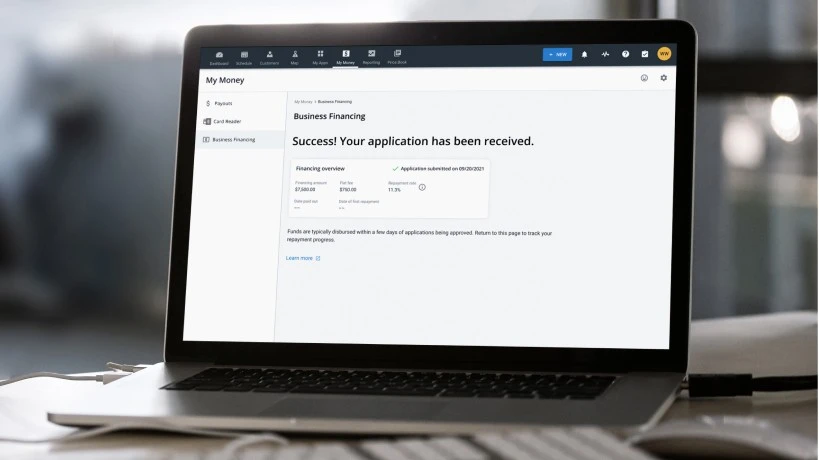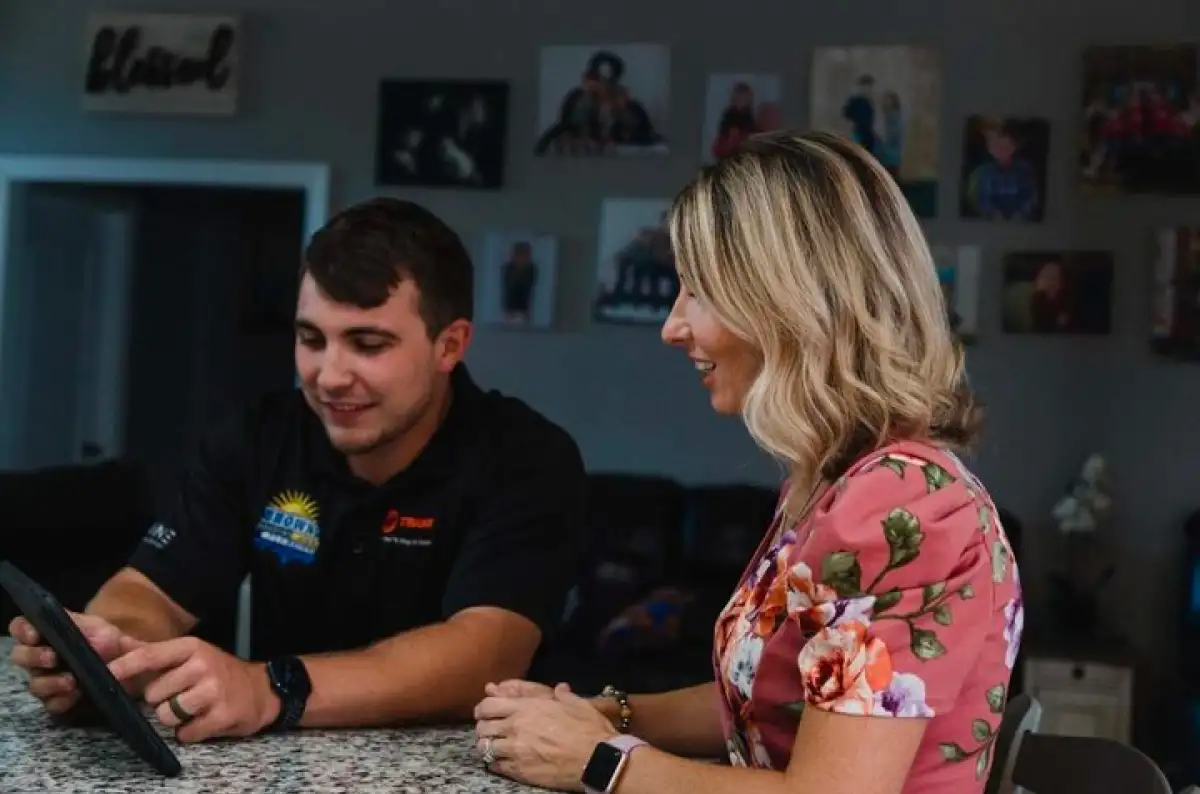
It’s an unfortunate truth that nearly all businesses will, at one point or another, find themselves confronting a customer with an unpaid invoice. Businesses in home-service industries know this all too well. Unfortunately, It’s not the least bit uncommon for the occasional customer to let an invoice slip their mind or get lost in the shuffle.
Often in these cases, it’s easy to collect payment in a timely manner. However, there are other stubborn customers — both individuals and businesses — that willfully ignore overdue invoices for whatever reason and refuse payment. For home-service professionals, dealing with customers like this can be the worst part of the job.
Chasing down unpaid invoices is never fun, and it can pose a challenge if your business is still in its early stages. To help you collect what you’re owed — and to increase the likelihood your customers will pay quickly — here’s our guide to dealing with unpaid invoices.
Our 7 steps to dealing with unpaid invoices
Step 1: pave the way for on-time payments
The best way to deal with unpaid invoices is to avoid them entirely. Make it easy for your customers to pay right away, regardless of where they happen to be when they receive your bill.
Utilize payment processing software
Send electronic invoices powered by payment processing software that makes it painless for a customer to get their account in good standing with a few clicks of a mouse or taps on a touchscreen. Include a clear due date on all invoices and specify exactly what will happen if payment is not received on time. Also consider offering an incentive to your customers when they pay early by offering a discount for fast payments — 5% or so should do the trick here.
Step 2: touch base when time is up
Once the due date on invoice has passed, don’t waste any time connecting with the customer to request the status of their payment. A phone call or face-to-face meeting is more likely to result in speedy payment, but, if worded properly, emails can light a fire under your customers as well. Keep your messages brief and professional, and politely request an update regarding the invoice in question. In many cases, customers have an excusable reason for not yet settling up, and the reminder you’ve given them is the only push they need to submit a payment. Here’s a quick example:
Hi [name],
I hope you’re having a great week. I’m contacting you because we have not yet received payment for our invoice #____ for $___. We sent the invoice to you __ days ago, and payment was due yesterday. Please send the payment immediately, or reach out to me right away if there are any issues.
Thank you for your prompt attention to this matter. Talk to you soon.
Kind regards,
Your loyal service provider
Step 3: appeal to your customer’s human nature
If your initial investigation into the status of an overdue invoice fails to produce a response, try following up with a more personal approach.
Work to understand their issue
Rather than adopting a cold, detached attitude and demanding immediate payment, express to your client that you understand how finances have a tendency to fluctuate unexpectedly but emphasize the fact that the overdue invoice must still be paid. Let the customer know you’re willing to extend the due date if times are tight and encourage them to contact you immediately to resolve this issue.
Step 4: agree to settle for less
Should your more personal approach fail to convince your delinquent customer to contact you, it’s time to come to terms with the fact that this overdue invoice is likely more than an innocent oversight. By now, your customer is surely aware that their payment is overdue, and it’s possible they have no plans on ever paying off their balance. In these situations, it often makes sense to settle for a reduced payment rather than receiving no payment at all. If possible, reach out to your customer once again, letting them know you’re willing to accept a reduced amount — the discount you offer is entirely up to you and what makes most financial sense.
Step 5: prepare to play hardball
Once it becomes clear that a customer has no intention of paying their outstanding debt, let them know you’re committed to collecting payment no matter what it takes. Be firm, yet professional in your communication and keep your company’s reputation in mind at all times. Never cross the line by name-calling or do anything threatening. However, if the customer is a business, mention that you will report them to the Better Business Bureau if payment is not received right away. Here’s an brief example of an email you could send:
Hi [name],
Unfortunately, we have still not received your payment for invoice #____ in the amount of $___. We have attempted to contact you several times to resolve this issue, but we have not made any progress.
Our company is committed to collecting payment for this project, and unless we hear from you today, our next steps will be to involve a collection agency or a legal firm. To be clear, we would rather resolve this billing issue without taking further action, but, without your cooperation, our options are limited.
Please contact us immediately to make payment arrangements and to avoid dealing with debt collectors and lawyers. We hope to hear from you soon. Thank you.
Sincerely,
Your service provider
Step 6: involve a collection agency
Still no word from your customer? A collection agency might have better luck. These services specialize in helping businesses recoup costs lost to delinquent customers — in exchange for keeping a cut of the funds they recover. Involving a collection agency means you’re giving up a portion of what’s owed to you, but receiving partial payment is still preferable to receiving none of it at all.
Start by researching collection agencies that work with small businesses in your area, and eliminate any options that aren’t bonded, licensed, and insured. Additionally, make sure any company you’re considering abides by the terms of the Fair Debt Collection Practices Act, and narrow down the field further by limiting your choices to agencies that use skip tracing to track customers who may have left town.
Step 7: take legal action
When all else fails, legal recourse might be the only option you have left if your former customer flat out refuses to pay an overdue invoice. Depending on your industry and the scope of the work you performed, you could take your customer to small claims court or recruit dedicated representation. In most states, if the amount the customer owes is between $2,500 and $15,000, you can take them to small claims court and represent yourself. You won’t need to pay for a lawyer in this scenario, but you should be prepared for court costs. If your customer owes you more than $15,000, you’ll have to fight for your money in civil court, which can quickly get expensive.






